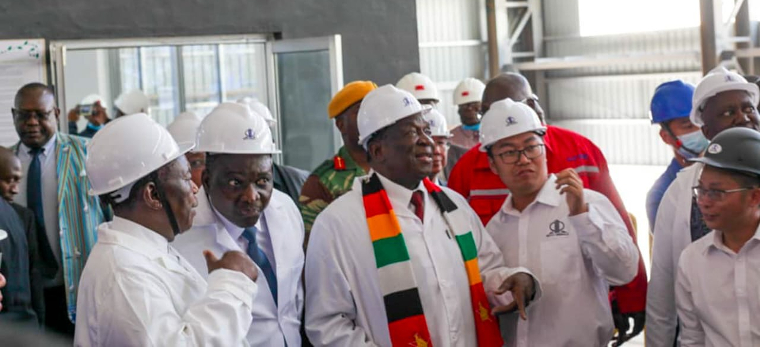 Zimbabwe has given lithium miners up to March 2024 to submit plans for the local production of battery-grade lithium in a bid to benefit from growing demand for the clean energy mineral, Finance Minister Mthuli Ncube said today.
Zimbabwe has given lithium miners up to March 2024 to submit plans for the local production of battery-grade lithium in a bid to benefit from growing demand for the clean energy mineral, Finance Minister Mthuli Ncube said today.
Africa’s top lithium producer last year banned the export of lithium ore and has imposed a 5% export tax on concentrates.
Lithium, used in electric vehicle batteries and to store renewable energy, has become foreign-currency starved Zimbabwe’s third biggest mineral export after platinum group metals (PGM) and gold, earning US$209 million in the first nine months of 2023.
Presenting the 2024 national budget, Ncube said the government does not regard the current production of concentrates by miners in the country as beneficiation, a process in which raw minerals are improved to add value.
“Any lithium value addition process that does not result in the production of lithium carbonate is not regarded as beneficiation. Lithium producing companies should submit their beneficiation plans no later than 31 March 2024,” Ncube said.
He added that no new licences would be granted to prospective lithium miners without approved beneficiation plans.
Zimbabwe’s hard-rock lithium reserves, some of the world’s biggest, have attracted over US$1 billion of investment from Chinese miners including Zhejiang Huayou Cobalt, Sinomine Resource Group, Chengxin Lithium Group, Yahua Group and Canmax Technologies.
Sinomine, which recently commissioned a US$300 million spodumene concentrator at its Bikita mine in southern Zimbabwe, said today that it had started feasibility studies on producing battery-grade lithium in the country.
Its peer Huayou, which bought Arcadia mine just outside Harare in 2022 and built a concentrator which started production earlier this year, has said it would explore local production of lithium sulphate “only when the construction and economic conditions are right”.
Huayou has previously said Zimbabwe lacks reliable renewable energy, natural gas, sulphuric acid and other key inputs needed to produce battery-grade lithium.
Zimbabwe has also struggled for years to get PGM miners to refine the metals locally. The PGM miners, who ship concentrates to South African refineries, say Zimbabwe does not generate enough electricity or minerals to support the huge capital outlay for building refineries.- Reuters
(69 VIEWS)

